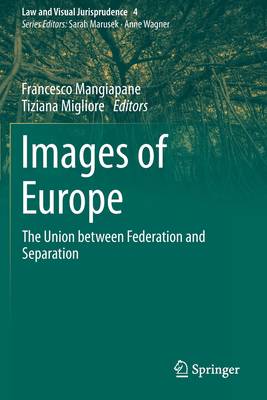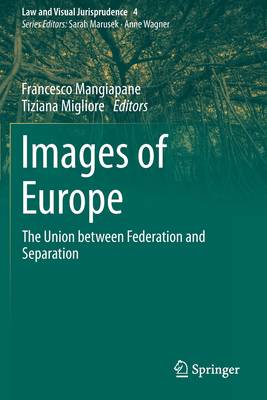
Bedankt voor het vertrouwen het afgelopen jaar! Om jou te bedanken bieden we GRATIS verzending (in België) aan op alles gedurende de hele maand januari.
- Afhalen na 1 uur in een winkel met voorraad
- In januari gratis thuislevering in België
- Ruim aanbod met 7 miljoen producten
Bedankt voor het vertrouwen het afgelopen jaar! Om jou te bedanken bieden we GRATIS verzending (in België) aan op alles gedurende de hele maand januari.
- Afhalen na 1 uur in een winkel met voorraad
- In januari gratis thuislevering in België
- Ruim aanbod met 7 miljoen producten
Zoeken
Images of Europe
The Union Between Federation and Separation
€ 181,95
+ 363 punten
Omschrijving
This book deals with the fundamental semantics of images of Europe, which consist of valences, mirror beliefs and affectivities. This is why it relaunches the importance of the European discourse in its symbolic dimension. As such, it explores the many images of Europe, or rather the many images through which European discourse is actually constituted in daily life, in search of their enunciative responsibility in today's world for determining the current "State of the Union". The identity of the European continent is based on a millenary tension between universalism and particularism: images of Europe have in fact been alternately inspired, over the centuries, by a model of homogeneity - Roman and Carolingian imperial disposition - on the one hand, and by a model of fragmentation - a Europe of city-states, municipalities, regions and small fatherlands - on the other. In the European Union, a political and economic organism, this issue has recently been amplified to the point that it has reentered public debate, and political parties that are only recognizable for being Europeanists or anti-Europeanists are now ubiquitous. In this regard, one major bone of contention is how to portray the quintessential aspects of the European territory, which are either interpreted as "thresholds" to be overcome in the name of a model of United Europe - "integral totality" - or are instead regarded as insurmountable obstacles for a Europe that is irreparably and perhaps, according to anti-Europeanists, fortunately fragmented - "partitive totality". Further, this is to be done without excluding the possibility of contradictory and complementary solutions to these binary visions. In this context the book analyzes various texts in order to obtain a more precise picture of the clash, reveal its semiotic forms, and by doing so, identify a way out of the crisis.
Specificaties
Betrokkenen
- Uitgeverij:
Inhoud
- Aantal bladzijden:
- 245
- Taal:
- Engels
- Reeks:
- Reeksnummer:
- nr. 4
Eigenschappen
- Productcode (EAN):
- 9783030692421
- Verschijningsdatum:
- 22/05/2022
- Uitvoering:
- Paperback
- Formaat:
- Trade paperback (VS)
- Afmetingen:
- 156 mm x 234 mm
- Gewicht:
- 362 g

Alleen bij Standaard Boekhandel
+ 363 punten op je klantenkaart van Standaard Boekhandel
Beoordelingen
We publiceren alleen reviews die voldoen aan de voorwaarden voor reviews. Bekijk onze voorwaarden voor reviews.








